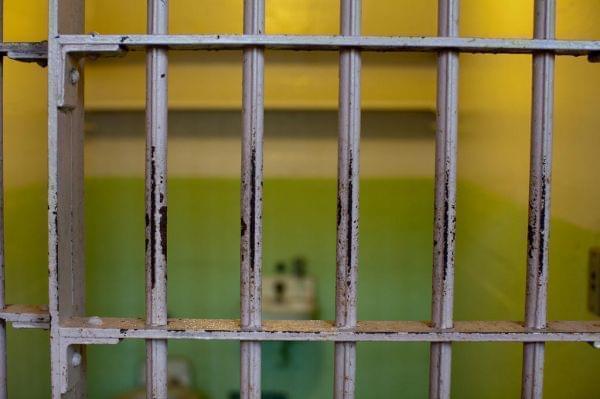Banned Books In Prison; Genetic Testing; Graduate Mental Health

Dnak/Flickr/ (CC BY 2.0)
On this encore version of the 21st: A new direct-to-consumer test for genetic links to breast cancer. And, a study reveals what researchers are calling a mental health "crisis" amongst graduate students. But first, how and why do states ban certain books in their prisons?
The U.S. has had prison libraries for almost as long as the country has existed. And even though prisoners don’t have very many options in terms of leisure time, books in prison can be an important resource, both while people are incarcerated and once they’re released.
But not all books are allowed in those libraries. There are more restrictions on prison libraries than your typical public library. About 10,000 books are banned in Texas prisons - including Freakonomics and the pop-up version of 'A Charlie Brown Christmas.' And earlier this week, New Jersey made headlines for banning an very influential book on mass incarceration - Michelle Alexander’s “The New Jim Crow.”
This made the news after the ACLU of New Jersey got its hands on a list of banned books in state prisons there. One of those books was co-written by a journalist here in Illinois. WBEZ reporter Natalie Moore discovered that one of her books was on the list to be banned. That’s “The Almighty P. Stone Nation: The Rise and Fall of an American Gang.”
Natalie joined us, along with Jenny Vollen-Katz, executive director of the John Howard Association, a nonpartisan prison watchdog group.
.@natalieymoore has a hard time believing the list was truly vetted. So many questions about why books were chosen. #BannedBooks #Prisons
— The 21st (@21stShow) January 11, 2018
Plus—
Anyone with a family history of breast cancer has probably wondered about whether they carry the gene that puts them at risk for cancer. It’s a concern that has been heightened in recent years by an increased awareness of public figures like Angelina Jolie who, being carriers of a gene that is linked with breast cancer, opted to get a preventative mastectomy.
Until now, the only way to find out about your own genetic risks when it comes to cancer is to see a doctor and ask him or her to order tests. But the Food and Drug Administration has just approved the first test that Americans can get without a doctor. And the company 23andMe is offering a testing kit direct-to-consumer for three specific mutations that increase one’s risk for breast cancer.
Shirley Wu is the company’s director of product science. She joined us today to explain what exactly this testing kit will do, and how.
We were also joined by Dr. Nora Hansen, who is the Chief of Breast Surgery at Northwestern Memorial Hospital, and Carmen Williams, a genetic counselor at Northwestern Medicine.
Dr. Nora Hansen, the Chief of Breast Surgery in the Department of Surgery @NorthwesternMed explains that not everyone chooses prophylactic surgery if they are carriers for cancer-linking genes like BRCA1 and BRCA2.#breastcancer
— The 21st (@21stShow) March 15, 2018
And—
Graduate students have a lot on their plate. They’re usually taking and teaching classes, in addition to writing their own dissertations that take years to finish. They don’t make much money; we heard about that when graduate students at the University of Illinois went on strike a few weeks ago (an issue that has now been resolved, with higher pay and tuition waivers).
A recent study released by Nature Biotechnology says that graduate students are “six times as likely to experience depression and anxiety” when compared with the general population. The study warns of a “crisis” in graduate education.
We were joined by two of the lead authors of the study, Nathan Vanderford and Teresa Evans. Nathan is an assistant professor at the College of Medicine at the University of Kentucky. Teresa is an assistant professor at the University of Texas Health Science Center in San Antonio. Inger Burnett-Zeigler also joined us, a clinical psychologist and assistant professor in the Department of Psychiatry and Behavioral Sciences at Northwestern University.
.@ibzpsychphd is a Clinical Psychologist and Assistant Professor at @NUFeinbergMed who works with #GradStudents dealing with #mentalhealth issues.
— The 21st (@21stShow) March 15, 2018
There are many stressors in #gradschool. A unique one was yesterday’s shooting hoax on Evanston’s @NorthwesternU campus.
